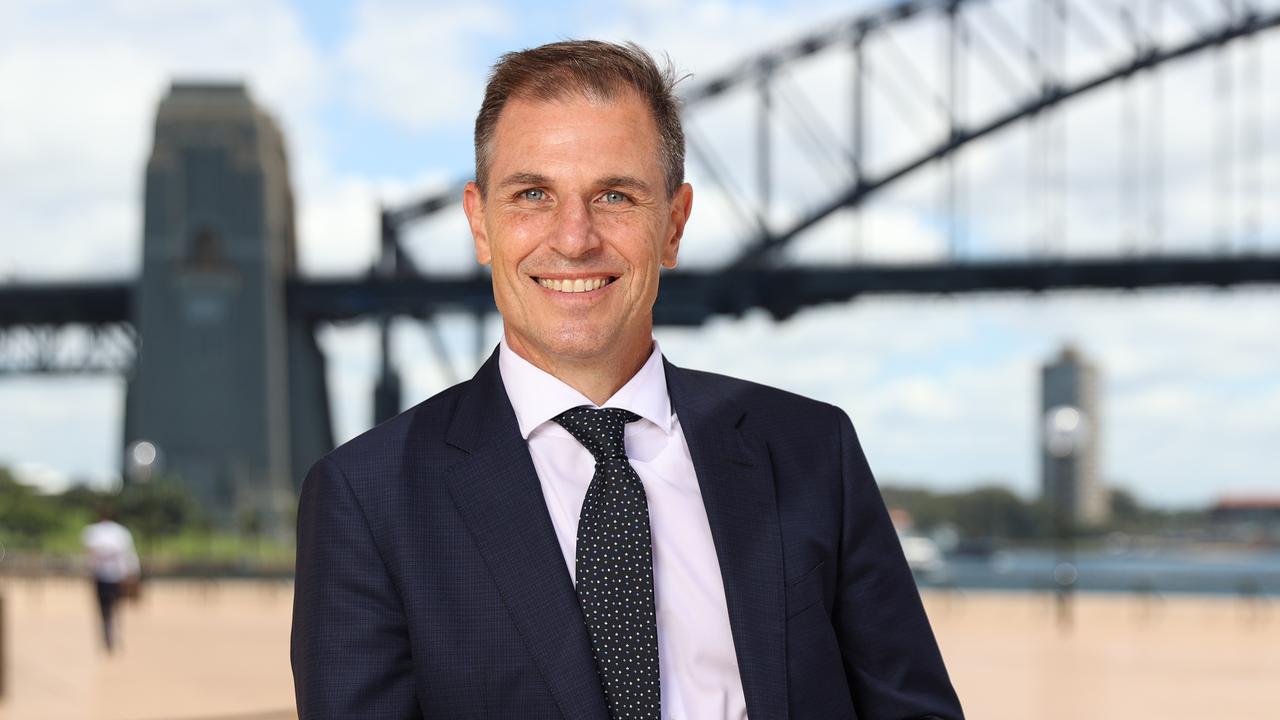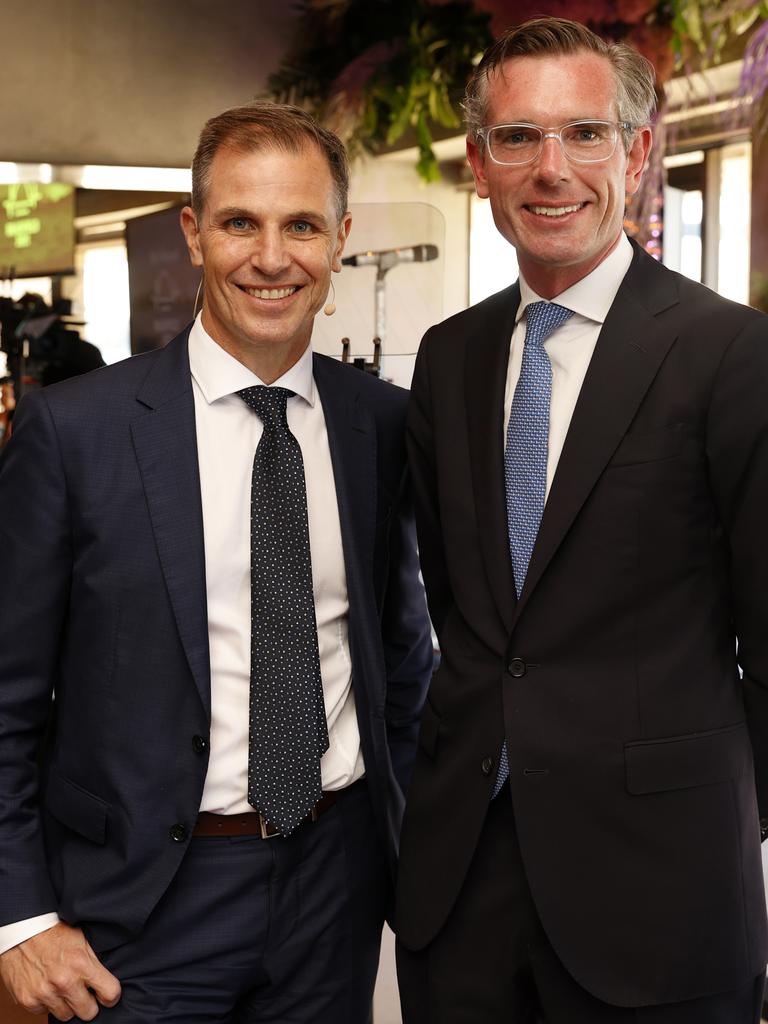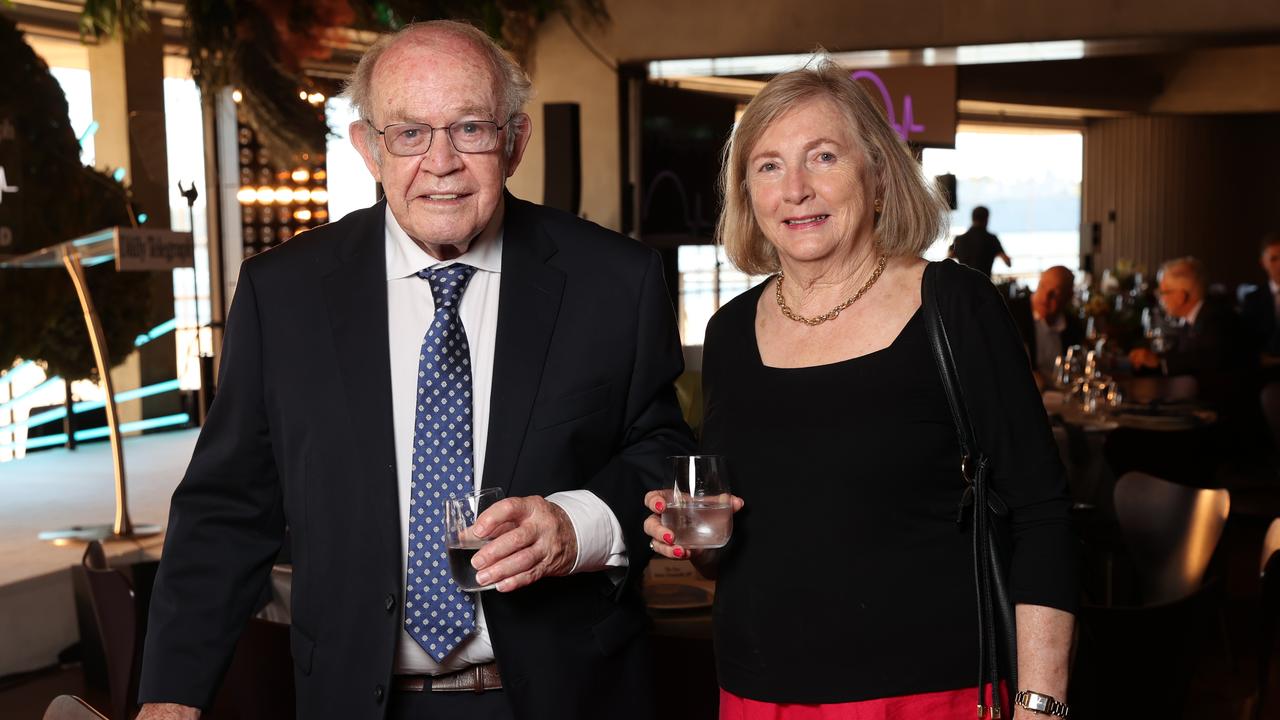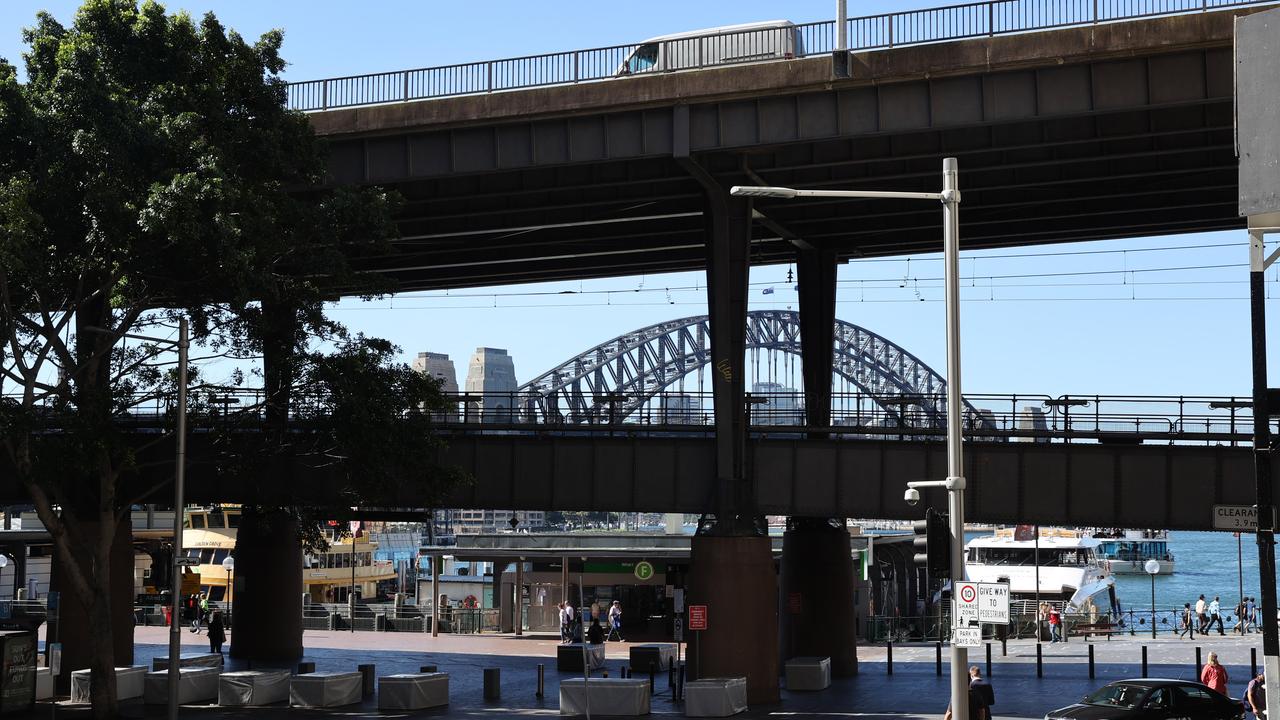Daily Telegraph Editor Ben English: Bradfield’s ambition should be our guiding light
Bradfield Oration 2021: Even the worst pandemics last only a few years, but the cities they hit last for centuries. It’s time to rebuild Sydney post-Covid, says Daily Telegraph Editor Ben English
I cannot tell you how marvellous it is to see this room full of the best and brightest minds Sydney has to offer here, under the sails of this magnificent symbol of our city, to chart a course for where we sail next.
And it is my pleasure and privilege to welcome you to the 2021 Daily Telegraph Bradfield Oration.
I suspect by now everyone in this room has been to enough events where the speaker has talked about Covid and the pandemic, and how good, after being apart, it is that we are all together again — and, no doubt, that’s great.
But let’s get real. Love-ins are fun, but that’s not what we are here for.

Even the worst pandemics come and go, generally in a matter of a few years.
The cities where they hit, however, last for centuries.
That is our challenge today, to reset our thinking.
Our minds have been so focused for so long on the latest set of case numbers, or vaccine stats, or fiddles to restrictions or when we can finally buy a loaf of bread without having to chuck on a mask, that we have not been able to take the long view.
Now, we can’t begin to imagine what Sydney might look like in the year 2500. But what we can do is think about what we want this city to look like in, say, 2050.
The work we all do, and the ideas we hear today, will affect our city for decades to come. That’s the way we need to think about it.
Which is also why I want to challenge everyone on the question of “how” we think about it.
The whole point of the Bradfield Oration, when it was conceived, was to bring great minds, not just from around Sydney or NSW but around the world, together to discuss what the vision is for this city, and how to get there.

But of course, that can get messy.
Cities are made up of people, and they all have their individual wants and needs and desires. Out of that seeming messiness comes an order, and our challenge is to respond to what the people of Sydney want and create the best possible vision of that.
As opposed to imposing it from above, like central planners and technocrats.
Of course, experts and technocrats have their place. But they often live in the world of numbers — a world that is becoming more and more the dominant way to view the world, and which misses one vital ability that makes us human: our facility with words.
I’m a newspaper editor, so I may be a bit biased on this score.
But we see this preference to filter everything through cold, hard spreadsheets in the way we talk about things.
Do the numbers stack up, we ask. The numbers don’t lie, we say.
Data has become the new gold, and all of us are mined for it every day, everywhere we go, by corporations and, yes, governments.
But numbers don’t contain ideas, they can only check them.
Numbers don’t inspire. They don’t contain vision, or spirit, or even soul.
Words do.
Words are the bricks and mortar of a human imagination.
That is how we express our hopes and dreams and articulate what we want to become.

In the Bible, the entire universe was created out of words.
In the Confucian tradition, it is taught that words are vitally important – and that if things aren’t called by their proper names, society falls apart.
The room we are now sitting in is named Yallamundi, which means storyteller in the local Gadigal language. For our First Nation’s peoples, history and connection were only possible with words passed down through countless generations.
Churchill’s words gave the British the spine to stand up to the Nazi war machine.
FDR’s words helped comfort Americans through the Great Depression.
I don’t want to scare you, Dom, but you’ve got some big shoes to fill.
Now we are not here to create a universe, or fix society, or even get ourselves through a war.
Though Covid has, at times, felt like a great siege.
Just think about the building we are in today. Jorn Utzon’s design was controversial, to say the least.
If you just wanted “the numbers to stack up” on an opera house, you would build a big concrete box, not the gravity defying, city defining marvel we sit in today.
Our Bradfield Orator this year, I believe, understands that numbers don’t mean anything without ideas to back them up.
He understands that cities are more than the sum of our parts, and has even engaged in a bit of freelance architecture criticism — largely correct, if published in the wrong paper I might add — in suggesting that there are some buildings around the skyline that are more blight than brilliance.

If what Churchill said about how we shape our buildings and then our buildings shape us is true, we have a real chance today to look forward to how we want our society to be shaped in the future.
Will Sydneysiders be more ennobled by thoughtfully designed communities that do density on a human scale? Or endless, anonymous flat-pack apartment towers that are just giant filing cabinets for people?
Do they deserve transport systems that work for them, or ones that tell them how the experts would prefer they should live?
And can our city be for everyone if too many people are struggling with commutes and mortgages to enjoy the shared spaces, public and private, that make us a community?
Big questions — but ones I think we might start to grapple with today.
After all, this is a city with big ambitions, and none of you would be here today if you didn’t share them.
John Bradfield had ambition in spades. Why else would he imagine and then oversee the Sydney Harbour Bridge, our City Circle train line, and countless other projects?
That’s why we named the oration after one of the city’s great visionaries.
That is why we honour John Bradfield, because we know that the hardware of our city is nothing without the software to run it, and see it through to the future.
He is a metaphor for our values, our hard-won though lately much disparaged freedom, and our vision.

Now I said at the start I didn’t want to talk too much about Covid, and I won’t, but of course it does set the scene for much of where we are now — even if we are, hopefully, going to move beyond it soon.
Covid has become as much a disease of the mind as of the respiratory system.
At times over the past two years, we have seen a creeping psychosis of fear grip the nation.
Our still-new premier knows this, and his declaration in his first days that, in his words, “I am the elected representative” laid down a marker to a bureaucracy that had lately become accustomed not to serving, but to ruling.
He also is alive to the sneers of those elite tastemakers who would put themselves above the everyday man and woman on the street.
This was seen, of course, in the attacks on his personal faith and even his family — although it should be said that his Labor counterpart Chris Minns joined the premier on a unity ticket to tell those critics where they could go.
And, I think, just as importantly Dom understands the need for reform — a wave of which powers our present prosperity — but which will not last forever.
We cannot sit still as a city, but since 2007 the idea of reform has been all but dead, killed off by the campaign around WorkChoices.
Not coincidentally, 2007 is also when social media, that sewer of snark and stupidity, began to take off. Giving everyone a megaphone has led to a decline in democracy and a narrowing of the acceptable.
But Twitter isn’t real life. And thank God for that.
Today, urgent reforms are also needed. Housing. Stamp duty. Education. So much else.
These are the things that will define how we live and how well we live for the years and decades to come.
So bearing that in mind, it’s no wonder there is much excitement and anticipation about what the man about to take the stage has to say about all of this.
Ladies and gentlemen, let’s put our hands together for this year’s Bradfield Orator, The 46th premier of NSW.
Mr Dom Perrottet
Read Premier Dominic Perrottet’s speech here
Originally published as Daily Telegraph Editor Ben English: Bradfield’s ambition should be our guiding light


